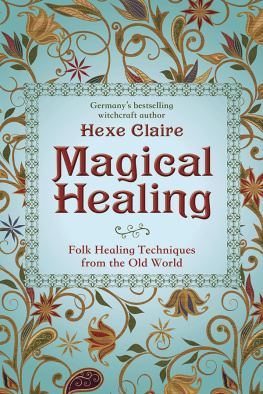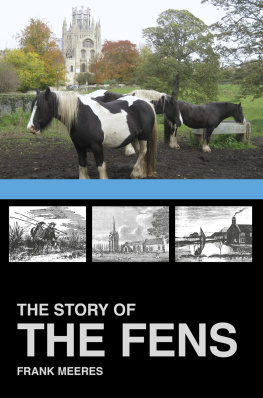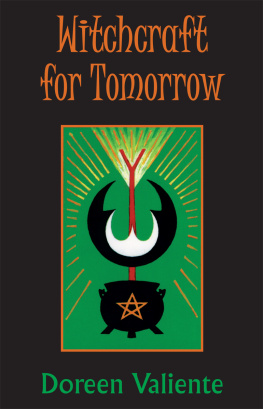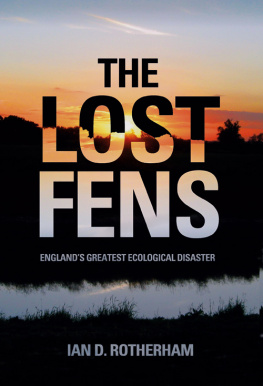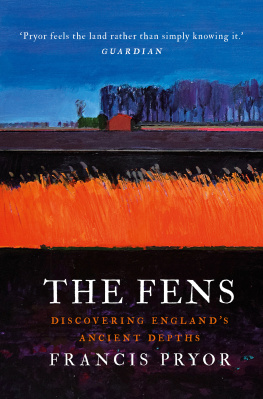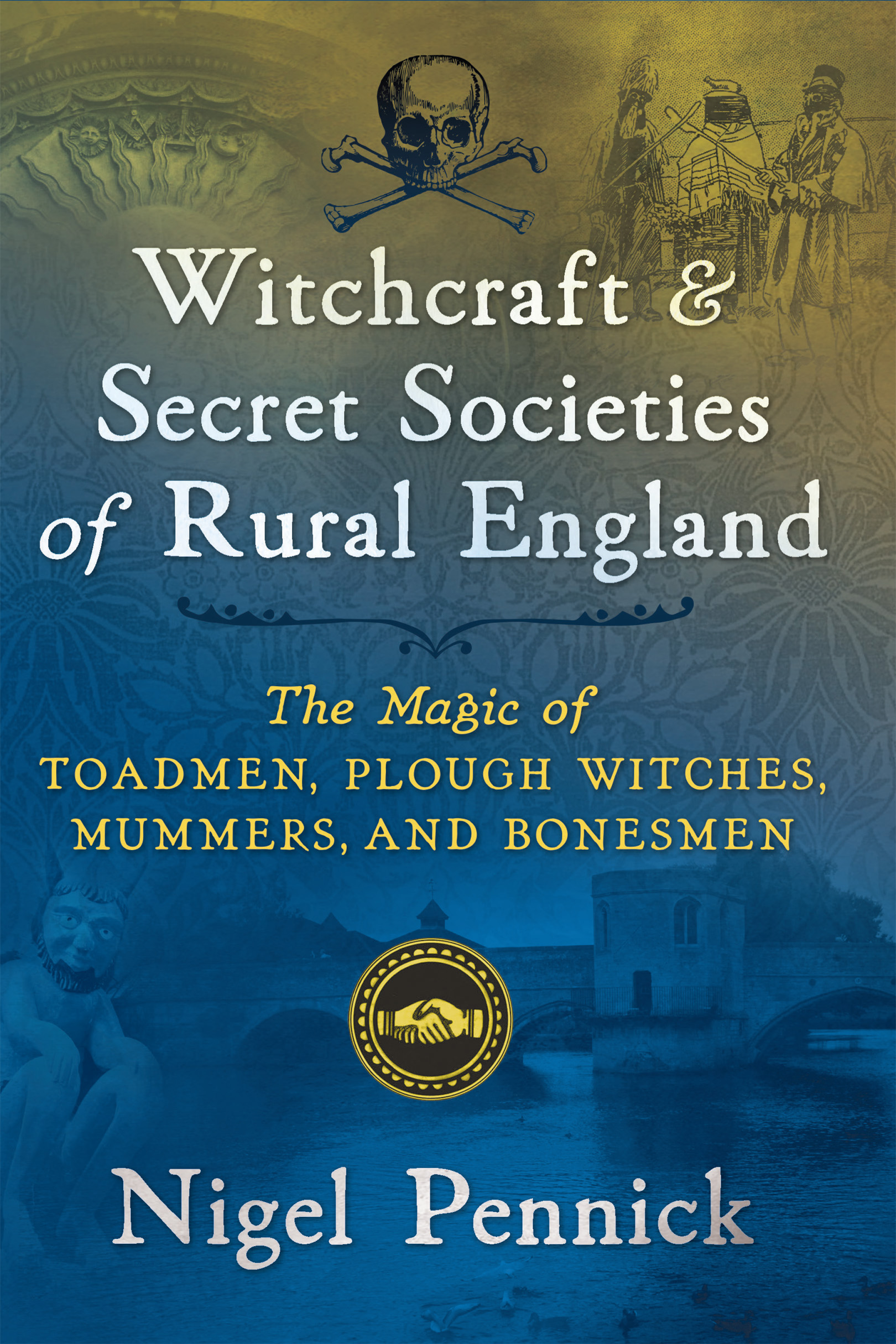
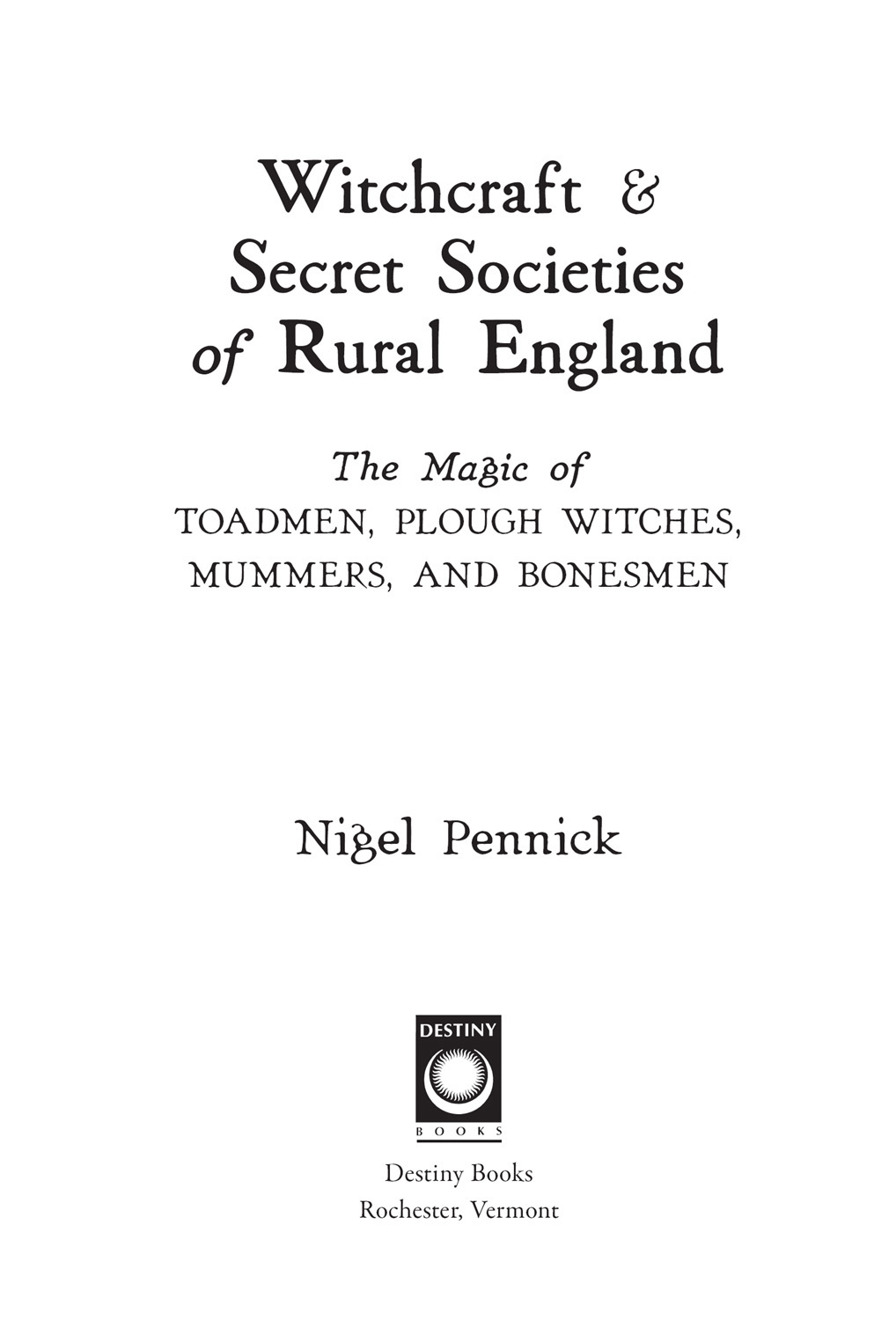
PRAISE FOR OTHER WORKS BY NIGEL PENNICK
Whether we call it magic or folklore (or even superstition), the traditional, often pre-Christian knowledge described in Pagan Magic of the Northern Tradition is fascinating. Ive been referring to Pennicks books for years when I need a fact or an example of some interesting early magic to cite in my books and blogs. I learned something new on every page!
BARBARA ARDINGER, PH.D., AUTHOR OF PAGAN EVERY DAY AND SECRET LIVES
Nigel Pennick is one of the greatest living runic experts, bringing meticulous research and a profound magical understanding to his subject. Runic Lore and Legend examines the distinctive Anglo-Saxon Futhark of Northumbria, essentially setting the thirty-three runes in the context of both time and place.
ANNA FRANKLIN, AUTHOR OF PAGAN WAYS TAROT
To have one of the leading authors on the wisdom of the runes pen this comprehensive manual [Runic Lore and Legend] on the Northumbrian wyrdstaves is a most valuable gift to all who follow the Northern Tradition. Pennicks weaving of local history and lore around the runes illuminates his subject in a way that no other book has been able to achieve.
RICHARD RUDGLEY, AUTHOR OF THE RETURN OF ODIN
In Runic Lore and Legend: Wyrdstaves of Old Northumbria, Pennick delivers the most thorough account of Anglo-Saxon history, mythology, and cosmology. His ability to weave their narrative into the use of the Northumbrian Runes and reveal their modern relevance is nothing less than magickal.
S. KELLEY HARRELL, AUTHOR OF RUNIC BOOK OF DAYS
Nigel Pennicks Pagan Magic of the Northern Tradition is a treasure trove of ancient folklore of magical rituals and charms for the protection of people and homes, of barns and livestock, of temples and churches, for good luck and healing as well as causing harm when the rituals are not followed.
NICHOLAS E. BRINK, PH.D., AUTHOR OF BALDRS MAGIC: THE POWER OF NORSE SHAMANISM AND ECSTATIC TRANCE
Pagan Magic of the Northern Tradition offers a well-documented overview of everyday magic, the last recourse against all evils. It introduces us to a strange Pagan world haunted by spirits and supernatural owners of nature and rehabilitates the studies of magic as an important part of our common cultural heritage. Pennicks book is well worth a read!
CLAUDE LECOUTEUX, PROFESSOR EMERITUS AT THE SORBONNE AND AUTHOR OF THE TRADITION OF HOUSEHOLD SPIRITS AND DEMONS AND SPIRITS OF THE LAND
The Book of Primal Signs is a veritable thesaurus of traditional symbolism, spanning from prehistory to today. This is a vital guidebook to a hidden world that is, most thankfully and wondrously, still in plain view.
MICHAEL MOYNIHAN, COAUTHOR OF LORDS OF CHAOS
Solidly referenced and carefully illustrated, The Book of Primal Signs seems to travel everywhere and touch everything...
RICHARD HEATH, AUTHOR OF SACRED NUMBER AND THE ORIGINS OF CIVILIZATION
Acknowledgments
To those, both living and now departed, for various and sundry assistance over the years, discussions, and information that contributed in one way or another to this book, I thank the following: Ivan Bunn, Michael W. Burgess, Peter Cave, Andrew Chumbley, Michael Clarke, Frances Collinson, Ben Fernee, Anna Franklin, Tony Harvey, Brian Hoggard, Tim Holt-Wilson, Pete Jennings, Patrick McFadzean, Cyril Papworth, Mike Petty, Les Randall, Sid Smith, Val Thomas, John Thorne, Bob Trubshaw, and Genevieve West in addition to the staffs of various libraries, archives, and record offices in Great Britain and Germany.
INTRODUCTION
Keeping Up the Day
Listen, lords, both great and small,
And take good heed of what I say:
I shall you tell as true a tale,
As ever was heard by night or day.
When I watched the demolition of a weather-boarded barn on Bradmore Street, Cambridge, early in 1968, I was struck at how it was going unnoticed that this was the last remaining structure from when that urban street had been farmland. Walking through the rubble, I picked up a smashed pantile, and there, scratched in it by the potter who made it before it went to the kiln, was the date 1738. In 1968, many of the buildings of the town in the Kite area and on the other side of East Road were boarded up in various states of dereliction. Most, unlike the venerable barn, dated from after 1811, when the land had been enclosed and sold off as building plots. Unnoticed and scorned, ready only to be pulled down, many of these buildings had the telltale signs of the craftsmen who made them: stained glass, ornamental weatherboards, wrought-iron wall anchors, doors pierced with the Cambridge spark of life pattern. The inhabitants had been moved out, and sociocide had taken place so that a new shopping center could be built.
In late 1968, a group of us set up the publication Cambridge Voice. It was clear to us that had these buildings been part of the university, they would have been lovingly preserved, and tourists would have taken admiring photographs of them. Although Cambridge Voice ceased publication in 1970, in our own small way we attempted to show that the everyday life of the town was authentic, existing with no help from the university, for between town and gown a social apartheid existed that has not changed in all the years since. The identity of Cambridge, as presented to tourists and the world at large, was and is solely of the university, as though the town itself and the working people of the town who serve the university and without whom it could not function were and are of no account. Local identity, important in so many ways, is marginalized within its own home.
To know oneself, one has to know the past. But how we perceive the past is important. The past is not a single thing that can be described and defined like a single object; there is a near-impenetrable complexity in what happened and the effect it has on the present. Many people look back to the past in an uncritical way; there is a tendency to glamorize the past. Reenactors and museum proprietors are in no position to re-create the misery and suffering that characterized large parts of many peoples lives in the past, so an acceptable impression is created instead. There is always a tendency to glamorize the past as the good old days. Some people look back on revisionist versions of history that they present as a golden age. Ones golden age depends on ones ideology: ancient Egypt, pagan Ireland, the Baghdad caliphate, Viking Scandinavia, Catholic Christendom, the British Empire, the Soviet Unionall can be presented as wondrous lost worlds where culture flourished and all lives were thereby enriched. How everyday life was for the peasants, artisans, and slaves whose labor kept the caliphs, popes, lords, kings, or party chairmen in luxury is ignored. Others look back more generally, seeking out some utopian societies: tribal, rural, nomadic, religious, national, and so forth. Religious utopians often try to emulate the way of life lived in the early days of the faith, when it was pure. Political utopians seek to restore decayed nations and empires. What they all have in common is an understanding that some of the ways of living and doing in the past were of value, but they are lost. By striving to restore the imagined utopias, they are striving to recover the ancient ways represented by their respective utopias.
Next page

